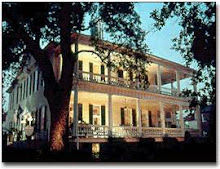
In 1775, as one of South Carolina's representatives to the First Continental Congress, Edward Rutledge of Charleston distinguished himself as a vocal and steadfast advocate of expanded liberties for the Colonies. In fact, Patrick Henry himself viewed Rutledge as "by far the greatest orator" among a group that included John and Samuel Adams, John Jay and Thomas Jefferson. Thus began his participation in one of the most momentous episodes in human history--the American struggle for independence.
Eventually, on July 4, 1776, Edward Rutledge became the youngest person to ratify, and later sign, the Declaration of Independence. This simple act--considered treasonous by the British--put his entire future at risk. Yet Rutledge and his colleagues--Jefferson, Franklin, Adams, and John Hancock among them--pledged "our Lives, our Fortunes and our sacred Honor" in support of the cause. Edward Rutledge was just 27 years old.
During the Revolution that followed, the British considered Edward Rutledge a dangerous proponent of open rebellion in the South. In 1780, he was captured, taken from his home in historic Charleston and held prisoner in St. Augustine, Florida. While some citizens retained their freedom by pledging loyalty to the King, Rutledge never wavered in his stance against tyranny. A modest man with immodest ideals, the gentleman from Charleston helped define the meaning of "patriotism." He would go on to become Governor of South Carolina and one of the most prominent and influential leaders in America. He retained his home in historic Charleston until his death.
After the American Civil War, the Edward Rutledge House was acquired by Captain Wagener, a wealthy merchant, who helped renovate the mansion during Reconstruction in the South. During the Depression of the 1930's, the house fell into some disrepair and was purchased by the Catholic Diocese of Charleston. The current owners acquired the home from a prominent Charleston family in 1998.
Edward Rutledge occupies a unique and celebrated place in American history. In recognition of this fact, his former Charleston residence, is listed on the National Register of Historic Places. In 1971 it was declared a National Historic Landmark by the U.S. Department of the Interior. Today, the elegant Governor's House Inn is a historic Charleston SC bed and breakfast.







